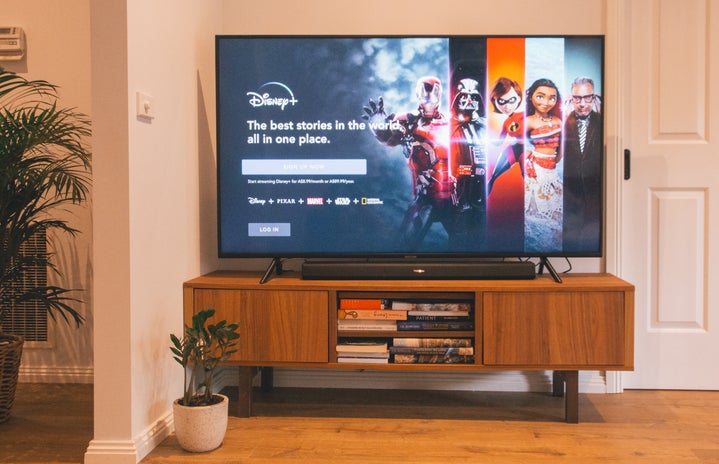Warning: Spoilers ahead!
Unless you have been living under a rock, WandaVision has been the most recent news of the Marvel Cinematic Universe. In the theme of Woman’s Month, WandaVision changes the game by finally centering the story around women, without these moments throughout the series feeling contrived or unlinked to the plot. While watching the limited series, I couldn’t figure out why I admired it so much. After finishing it, I think it was the strong themes of female empowerment throughout that made me quite content.
The storyline was well-written and fits right between Infinity War and after End Game perfectly. I am a Marvel fan, and this is the first time I have been so intrigued by the story of a female Marvel superhero. Yes, there is the famous Captain Marvel and Black Widow, but this just felt like the first time it was mostly centered around women. The four female characters that stuck out the most to me were Wanda Maximoff, Agatha Harkness, Monica Rambeau and Darcy Lewis, who are all very powerful women. The fact that in the Marvel Universe, Wanda (also known as the Scarlet Witch in the original comics) is the strongest and most powerful superhero, says a lot about Stan Lee and Jack Kirby’s vision. I think it is important to note that a female is the most powerful superhero in the Marvel Universe, considering that Superman is the most powerful in the DC world.
In the end-credits scene of the WandaVision finale, we see Wanda studying the Darkhold book. She becomes more formidable and there is no way of knowing what she is really capable of. In WandaVision, we learn that she was born a witch with natural powers and abilities like telekinesis, telepathy and energy manipulation. It wasn’t until the Mind Stone amplified her powers, that she later became the Scarlet Witch and began her quest to master chaos magic.
I also noticed that the female characters in WandaVision are also not sexualized. This was a relief for me because I felt like the story centered around Wanda, without having to over-sexualize her. In opposition, look to Wonder Woman in the DC world, whose character portrayal was over-sexualized for the male gaze.
The last theme of femininity that I noticed was that Wanda did not need help from a man. Yes, she brought Vision back to life, but this was more of a result of her grief and not being able to let go. Wanda was struggling through loss, pain and trauma, which manifested into her alternate reality of Westview, New Jersey. This was how she coped with her grief. Nowhere in the series did Wanda really need help from a man. The series placed Wanda in a position of power in the home sphere, even while adopting typical domestic roles. Wanda was often in control of the situation and if she wasn’t, it was probably Agatha controlling the narrative. Wanda had so much power that she wasn’t aware of and she didn’t know what to do with it. This was such a strong message that stood out to me because I believe women have so much power within them. It’s about finding strength within yourself and expressing them in forms of belief, willpower, a positive attitude and confidence in yourself.
If you haven’t watched WandaVision, I suggest you watch it immediately. I think Wanda is a great role model and a notable embodiment of female power. I would love to see more female superheroes like Wanda Maximoff in future Marvel movies.



